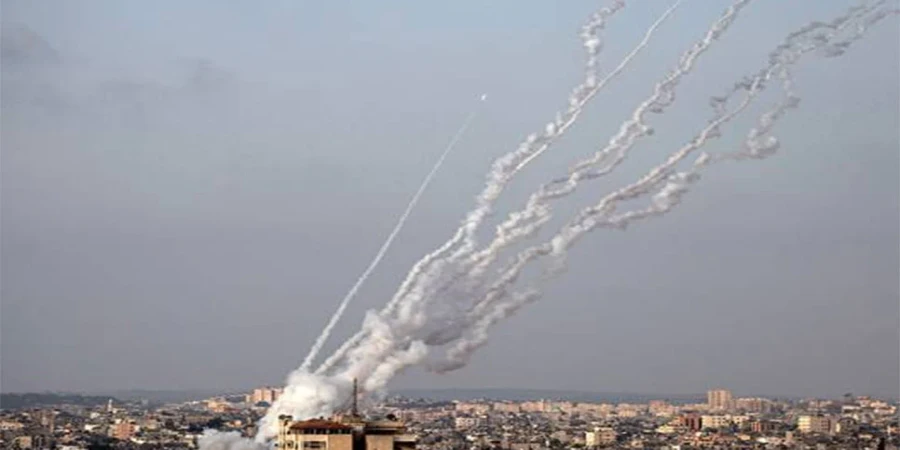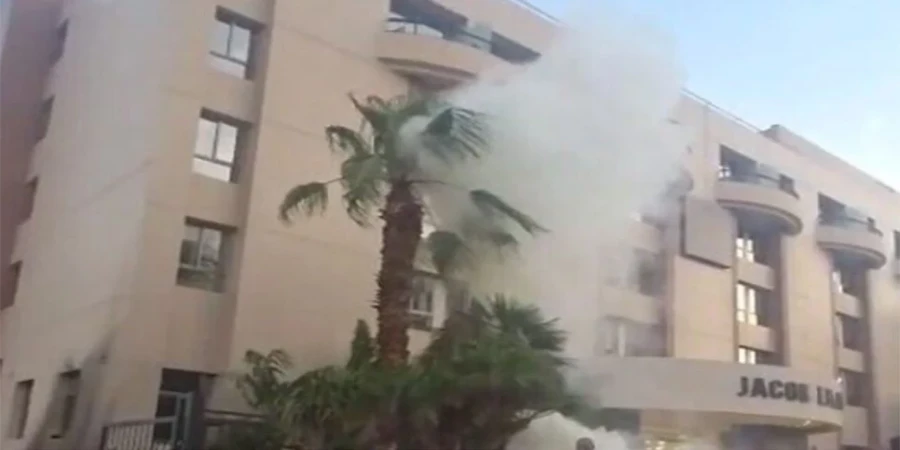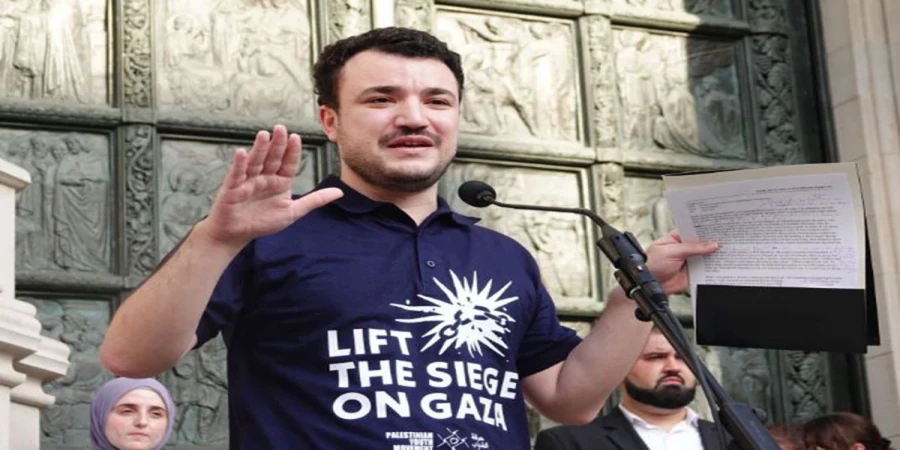
ছবি: -Collected Photo
Israel’s military has reported that two rockets were launched from the Gaza Strip toward the coastal city of Ashdod on Sunday morning, triggering air raid sirens across the area. According to the Israel Defense Forces (IDF), one of the rockets was intercepted by Israel’s air defense system, while the other struck an open area without causing casualties or significant damage.
The Times of Israel reported that the frequency of projectile and long-range attacks from Gaza has been declining, a development attributed to the scale of Israel’s ongoing military operations. IDF ground assaults have further eroded the capabilities of resistance groups inside Gaza, making it increasingly difficult for them to carry out large-scale attacks.
Despite the reduction in rocket fire, the humanitarian toll in Gaza continues to escalate. The Palestinian Health Ministry announced on Saturday that the death toll from Israel’s prolonged offensive has risen to 65,208. In its statement, the ministry confirmed that 34 bodies were brought into hospitals within the last 24 hours, alongside reports of at least 200 new injuries. With these figures, the total number of injured since the onset of the conflict now stands at 166,271. The ministry added that many people remain trapped under rubble or lying on the streets, unreachable by rescuers due to the intensity of the bombardment.
The devastation has not been confined to combat zones alone. In recent days, the Health Ministry also reported a growing number of casualties linked to attempts at obtaining humanitarian aid. Over the past 24 hours, four more Palestinians were killed and at least 18 others wounded while trying to collect food and essential supplies. Since May 27, a total of 2,518 Palestinians have lost their lives, and around 18,449 have been injured while seeking humanitarian relief. Aid agencies and international organizations have criticized Israel’s tightly controlled relief distribution system, with some describing it as a “death trap” for civilians caught in the crossfire.
The dual crisis of military escalation and humanitarian deprivation has fueled international alarm. Ashdod’s rocket incident reflects the continuing volatility of the conflict, with the threat of cross-border attacks persisting despite Israel’s assertion that militant capacities in Gaza are weakening. Meanwhile, the rising civilian casualties and the dire humanitarian situation highlight the growing gap between military objectives and the survival needs of Gaza’s population.
As the conflict grinds on, the cycle of attacks and reprisals shows little sign of abating. The IDF continues to stress the necessity of its operations, while Palestinian officials and humanitarian groups warn of catastrophic consequences for Gaza’s civilian population. The global community remains divided, with some governments emphasizing Israel’s right to defend itself against rocket fire and others urging restraint in the face of mounting civilian deaths.
The events of Sunday once again underscore the complexity of the conflict: on one hand, rocket fire from Gaza disrupting life in Israeli cities, and on the other, the staggering human toll borne by Palestinians under siege. With both sides locked in a prolonged confrontation, the prospect of de-escalation appears increasingly remote, leaving civilians—whether in Ashdod or Gaza—bearing the heaviest burden of the violence.
repoter





